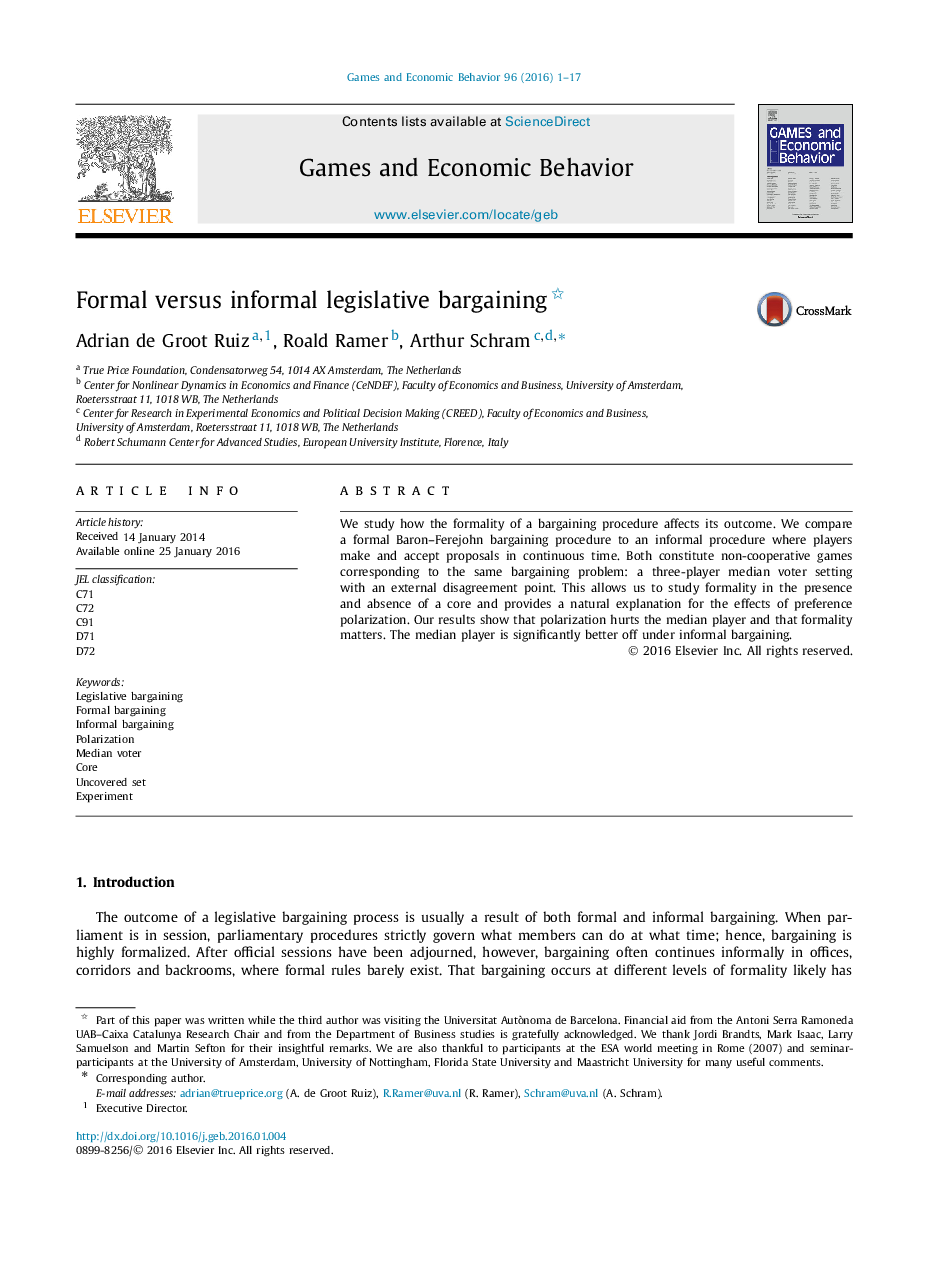| Article ID | Journal | Published Year | Pages | File Type |
|---|---|---|---|---|
| 5071490 | Games and Economic Behavior | 2016 | 17 Pages |
Abstract
We study how the formality of a bargaining procedure affects its outcome. We compare a formal Baron-Ferejohn bargaining procedure to an informal procedure where players make and accept proposals in continuous time. Both constitute non-cooperative games corresponding to the same bargaining problem: a three-player median voter setting with an external disagreement point. This allows us to study formality in the presence and absence of a core and provides a natural explanation for the effects of preference polarization. Our results show that polarization hurts the median player and that formality matters. The median player is significantly better off under informal bargaining.
Related Topics
Social Sciences and Humanities
Economics, Econometrics and Finance
Economics and Econometrics
Authors
Adrian de Groot Ruiz, Roald Ramer, Arthur Schram,
